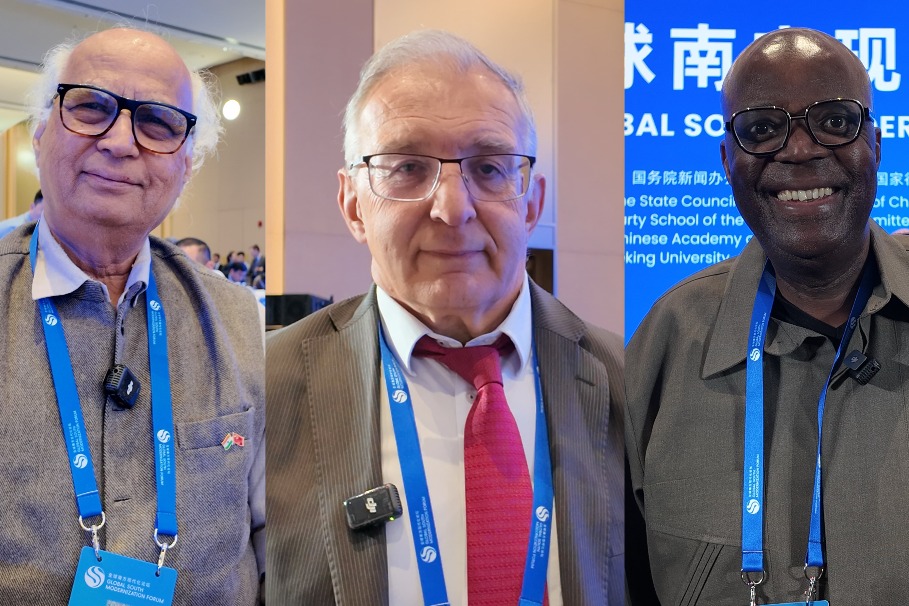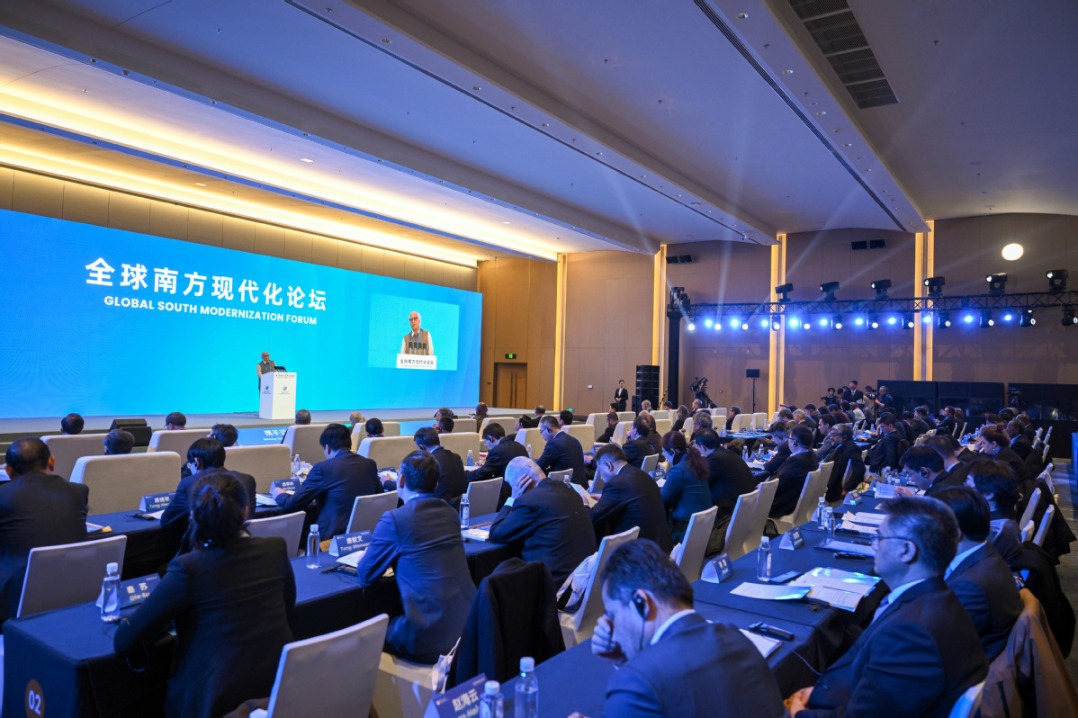Changing tunes

Right tune
Unlike guitar companies which are taking the fledgling steps onto the international markets, piano makers, particularly Pearl River Piano, China's first and most famous piano brand, have been testing the waters since the 1980s.
|

Zhu Mingjiang, founder of Noble Heart Violins, has won 19 awards at the Violin Society of America competitions. [Provided to China Daily]
|
When Pearl River Piano first appeared in the National Association for Music Merchants Show in the US at the beginning of 1985 as the only Chinese manufacturer, very few showed interest. Some people, played the piano for a while and simply left without a word.
But it was this lukewarm experience that prompted the company's management team to embark on a journey to further enhance technologies and skills.
Since 1987, Pearl River Piano has been hiring top talent from Europe and the US to help improve the techniques and skills and to also design high-end products, including the Kayserburg series developed in 2007.
To build up an internationally acknowledged piano brand also meant that the company had to make inroads in demanding markets like Europe and the US.
In 1999, the company opened its first sales outlet in the US and purchased one of the oldest European brands Ritmuller (founded in 1795) in Germany to enter the European market. It subsequently set up its second overseas branch in Munich in 2004. So far, the company has opened 235 overseas sales outlets in more than 100 countries and regions.
In 2010, Pearl River sold more than 40,000 pianos in the US market, and became the second largest company in Europe in terms of sales, with a market share of 15 percent, according to 31.toocle.com, a division of Zhejiang NetSun Co Ltd, a major Internet information service provider in China.
Pearl River Piano has been the largest piano manufacturer in the world since 2002, according to China Radio International. It produced more than 100,000 pianos in 2011 with a global market share of 20 percent, and nearly 85 percent of the sales came from overseas markets.
At the same time, the company has also been constantly upgrading its product line up.
|

Violins made by Guangzhou Gremona Violin Co Ltd. [Yang Yang / China Daily]
|
In 2011, the sales of middle- and high-end upright pianos accounted for more than 56 percent of the total piano sales, up 3 percent from the previous year. The sales of the Kayserburg series of pianos grew by almost 41 percent compared with 2010, while those of its popular pianos declined.
The brand's pianos have always been recognized for their high performance, says Liang Ruixiang, director of the Department of Musical Instrument Technology at the Xinghai Conservatory of Music.
But despite the 66 years of technical knowledge and the continuous efforts to improve added value, the company's products still cannot match the world's top piano brands, such as Steinway & Sons of the US and Bluthner from Germany, in quality.
The problem comes from the lack of professional talent who can make the instruments artistic.
"When you go to the China (Shanghai) International Exhibition for Musical Instruments, you will find that the salespeople and makers of the world's best pianos are musicians themselves. But most of our workers are migrant workers who lack professional knowledge and can hardly make the pianos artistic," says CMIA's Li Aiqun.
Although the Xinghai Conservatory of Music in Guangzhou has started tuning classes to train professional talent, most of the graduates still prefer to work in piano stores, as the salaries are higher and there is more freedom, Li says.
Earlier this year, Bluthner opened a new factory in Guangzhou to produce the company's third brand Irmler, with an expected annual output of 20,000 upright pianos to cater to the booming domestic market. "The company's best brands Bluthner and Haessler are still not made in China," says Fang Yang, chief executive officer of Bluthner Piano (China) Gmbh.
Fang says that even if the materials, equipment and technology are the same, the pianos made in China cannot be compared with those made in Germany, as it is the personnel who are responsible for the last procedure - tuning - that makes the real difference.
"If the pianos we produce in Guangzhou are handled by the Germans during the last procedure, our quality can also match up to German standards. However, one generation is not enough for us to catch up with Germans in piano tuning," Fang says.
"It's a matter of the whole society's appreciation level. When we are used to the sound of 1 million yuan pianos, I think we can tell they are good, as it requires the combined efforts of one or two generations."
Today's Top News
- 15th National Games embodiment of high-quality development
- Lawmakers' thousands of proposals receive responses
- China warns Japan against interference
- Nation's euro bond sale shows investors' confidence
- No soft landing for Tokyo's hard line
- Commerce minister urges US to increase areas of cooperation






























